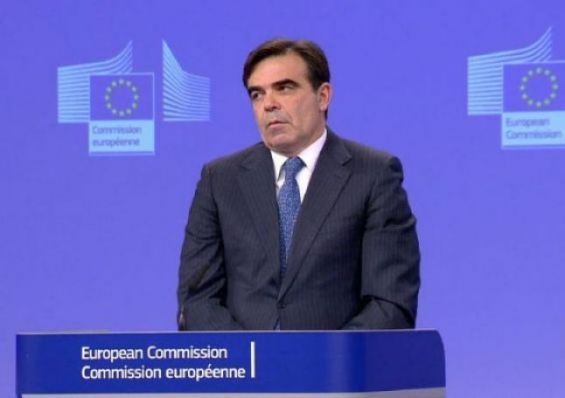Unlike the President of the European Commission who spoke on Tuesday on the migration crisis Ceuta, without referring to Morocco, the Vice-President of the same body said on Wednesday that «Europe is not and will be intimidated by anyone». Interviewed by a Spanish public radio, Margaritis Schinas argued that «Ceuta is Europe, this border is a European border and what is happening there is not Madrid's problem only is it the problem of all Europeans».
After 8,000 migrants, mostly Moroccan, managed to cross to Ceuta in an unprecedented irregular migration wave, he said that Europe would «not be a victim of these tactics», referring to the Kingdom.
«No one can intimidate or blackmail the European Union», insisted Margaritis Schinas, adding that there had already been «in the last 15 months some attempts by third countries [...] to instrumentalize» the migration question. «We can’t tolerate this», he said.
Changing tones
Margaritis Schinas' statement contrasts with the more calculated reactions of European officials. On Wednesday, the High Representative of the European Union for Foreign Affairs and Security Policy, Josep Borrell defended the «good relations» between the EU and Morocco, calling for these relations to be preserved, particularly when it comes to managing migration through «cooperation and dialogue».
EU stands in solidarity with Ceuta & Spain.
We need common EU solutions to migration management.
This can be achieved with agreement on the New Pact on Migration.
Stronger partnerships based on mutual trust & joint commitments with key partners like Morocco are crucial.— Ursula von der Leyen (@vonderleyen) May 18, 2021
For her part, the President of the European Commission, Ursula von der Leyen declared on Tuesday that the European Union «stands in solidarity with Ceuta and Spain». «We need common EU solutions to migration management. This can be achieved with agreement on the New Pact on Migration», she added. Referring to the Kingdom, the European official believes that «stronger partnerships based on mutual trust and joint commitments with key partners like Morocco are crucial».
According to the latest official figures from the Spanish government, nearly 8,000 migrants have entered Ceuta irregularly since Monday morning, including more than 2,000 minors. Spain has already expelled 4,800 adults, as part of the agreements between Rabat and Madrid. Morocco, for its part, sealed the Tarajal border crossing on Wednesday.





 chargement...
chargement...













